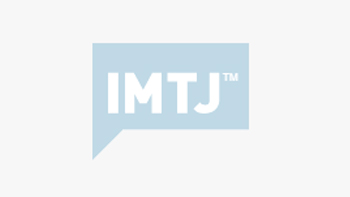Legislator Shim Jae-chul has submitted a bill to the National Assembly that calls for setting up a single international hospital accreditation system for Korean hospitals, “Korea needs an accreditation system that patients at home and abroad can trust, which can be used to find the most suitable hospital for their illness.
Legislator Shim Jae-chul has submitted a bill to the National Assembly that calls for setting up a single international hospital accreditation system for Korean hospitals, “Korea needs an accreditation system that patients at home and abroad can trust, which can be used to find the most suitable hospital for their illness. Under the current law, general hospitals and clinics with 300 beds or more are required to participate in hospital evaluation programs as part of plans to improve the quality of the country’s medical services. However, they have not been much use as they lack credibility and their assessment reports have been too ambiguous and general. Even an accreditation system supervised by the Ministry for Health, Welfare and Family Affairs and run by the Korean Hospital Association, has turned out to be good for nothing as it failed to show which hospital offers the best treatment for a particular disease. An excessive number of accreditation bodies, run by the government, associations, as well as academies, have been established, resulting only in a financial burden on the government and a work overload at hospitals.”
Shim wants a new patient-friendly system to be launched this year to replace or integrate the numerous domestic accreditation programmes, “Only the hospitals that want to certify their medical skills will participate in the accreditation program, which, will be run by the government for the first few years. Hospitals will also be allowed to receive accreditations in certain areas that they are proficient in. An independent organization will eventually take over the state-initiated program once it gains trust among patients. This will help local hospitals promote medical skills without having to pay a hefty amount of money to gain international accreditation from organizations such as the JCI is that is only suitable for large hospitals. The JCI might be a must to those hospitals targeting Americans, but it is not widely recognized in countries, such as Japan, Europe, Middle Eastern nations and Russia.”
Shim’s aim is to help hospitals and clinics wanting to increase their medical tourism business, “ The new indigenous accreditation system will contribute to providing accurate information about Korean hospitals in the future. Korea’s advanced medical technologies and outstanding human resources are undervalued abroad. Perhaps Korea has focused too much on telling the world how good our medical industry is without properly providing the information that foreigners want to look at before making a decision.”
The Korean medical tourism industry saw 27,480 foreign patients in 2008, and 50000 in 2009, with the number expected to jump to 200,000 by 2012. The government’s goal is one million foreign patients a year by 2020.Korea’s state tourism is aiming to attract 70,000 health tourists this year. The state- owned Korea Tourism Organization (KTO) will promote the country’s medical tourism using foreign media. The KTO will also expand its one-stop service centre for medical tours located in Incheon, Korea’s main gateway, by setting up a branch in Busan, located on the southern tip of the Korean Peninsula. The organization is actively trying to attract more health tourists through its 27 overseas branches. Hospitals have launched strong marketing campaigns since they were allowed to advertise for foreign patients under a law that took effect last year. Last year, KTO attracted health tourists from Japan, China, Russia and Kazakhstan. It is now also targeting the United States and wealthy Middle East countries. The Chinese market is an important target, with an estimated growth of 20-30 percent every year. In 2009 5 % of the 50,000 overseas medical tourists to South Korea were from China. For the Chinese, the short distance and frequent flights from China to South Korea, as well as the food and mild climate are advantages. In order to attract more Chinese travellers, some hospitals in Seoul have begun to employ interpreters and nurses who can speak Chinese.
Samsung Medical Center in Seoul has launched a new international executive health programme, a top-of-the-range all-encompassing medical check-up service designed for high-end customers from overseas markets. Jaseng Hospital of Oriental Medicine recently opened a totally separate building, exclusively for foreign patients.
Organizing the medical treatment needs to be done privately, as many travel agencies shy away from being involved in what can be complicated and risky surgery. It is illegal for Chinese travel agents to operate cosmetic surgery tours. They can however organize visas, tickets and hotels and trips that include one-day facial experiences in cosmetic clinics in South Korea. KTO has launched promotions with six Chinese tourism agencies.








 ©2024 All rights reserved LaingBuisson
©2024 All rights reserved LaingBuisson 


